Is Dubai ready for Michelin?
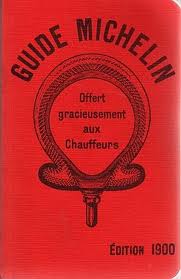 Is Dubai ready for Michelin? This question has been top of FooDiva’s mind lately especially since Dubai hosted its largest gathering of chefs from Michelin-starred restaurants ever last month, with chefs representing restaurants totalling 12 Michelin stars. Furthermore, for the first time ever, the Dubai outposts of two international restaurant brands, Zuma and La Petite Maison have made the cut for another well respected restaurant rating system, the World’s Best Restaurants at 83 and 96 respectively. And if that wasn’t enough Zagat, a consumer survey-based guide now owned by the Google giant will launch its first Dubai book later this year (as an aside you can now vote here!)
Is Dubai ready for Michelin? This question has been top of FooDiva’s mind lately especially since Dubai hosted its largest gathering of chefs from Michelin-starred restaurants ever last month, with chefs representing restaurants totalling 12 Michelin stars. Furthermore, for the first time ever, the Dubai outposts of two international restaurant brands, Zuma and La Petite Maison have made the cut for another well respected restaurant rating system, the World’s Best Restaurants at 83 and 96 respectively. And if that wasn’t enough Zagat, a consumer survey-based guide now owned by the Google giant will launch its first Dubai book later this year (as an aside you can now vote here!)
Dubai’s dining scene is clearly burgeoning (after all that’s why I launched FooDiva), thanks to the influx of new restaurants, a primarily expat population and an eating out culture. But these openings tend to be imported brands – not home-grown concepts where true gourmet innovation and local cuisine can shine.
Licensing laws are changing and it’s now not just restaurants in hotels that serve alcohol, but the likes of DIFC and Souk Al Bahar are encouraging more restaurateurs to open shop here – so perhaps we will see a shift away from hoteliers bringing in recognised brands to more locally developed concepts.
But let’s just clarify exactly what we’re talking about here. Michelin published its first ‘Red Guide’ for restaurants and hotel establishments in France in 1900, with the first stars awarded in 1926. There are now 27 Red Guides spanning three continents and 23 countries from France, UK and Italy to Japan, Hong Kong and the US – 45,000 + establishments that a slew of Michelin hired ‘inspectors’ review incognito. To date, no Middle East.
Here’s how the Michelin guide defines its star ratings:
- One star indicates a very good restaurant in its category, offering cuisine prepared to a consistently high standard. A good place to stop on your journey.
- Two stars denote excellent cuisine, skilfully and carefully crafted dishes, with specialties and wines of first-class quality. Worth a detour.
- Three stars reward exceptional cuisine where diners eat extremely well, often superbly. Distinctive dishes are precisely executed, using superlative ingredients. The wine list features generally outstanding vintages and the surroundings and service are part of this unique experience, which is priced accordingly. Worth a special journey.
Just to confuse matters, after each investigative process, Michelin also designates the restaurants they feel deliver the most value to consumers – via the ‘Bib Gourmand’ accolade – “an ideal resource for consumers looking for the perfect meal at a reasonable price.”
Important to note that three Michelin stars is not just about food and wine excellence, but service, interior and atmosphere – all crucial to the dining experience. And hence why the stars are awarded to the restaurant not the chef. From FooDiva’s experience, UAE restaurants invest in the highest calibre of chefs and cooks, knowledgeable sommeliers and no-expense spared decor, but sadly service is an ongoing challenge here with not much menu knowledge, inconsistency and constant upselling – not helped by lack of sufficient training. There are only a handful of restaurants here that get this right. Like with chefs, why are the hoteliers not investing in more experienced maitre d’s and waiters here? The restaurateurs appear to do so.
It’s a pretty well known fact that Tokyo has more Michelin star restaurants (three Michelin included) than the home of the guide, Paris – and that’s of eateries enticing with mostly Japanese cuisine, not just French. So does Dubai need to develop restaurant concepts that really embrace Arabic cuisine and use local ingredients for Michelin to start taking a peek, whether that’s for potential star ratings or Bib Gourmand? Yes I do think so, but am sure Michelin already has its beady eyes on Dubai. Anyhow that can’t be a bad thing if it helps mark brand Dubai on the global gastronomy map.
Or should we let Dubai’s food scene develop naturally without the added constraints and pressure of Michelin – perhaps this begs the question is Michelin ready for Dubai? Another strong argument, but enough from FooDiva, let’s see what a hot pot of chefs, F&B industry professionals and food editors have to say when FooDiva asked if Dubai and to an extent Abu Dhabi are ready for Michelin.
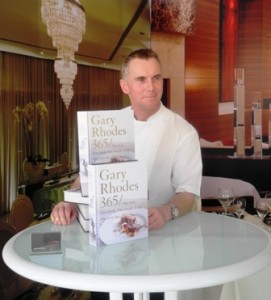 Gary Rhodes [three Michelin-starred restaurants in the UK. In partnership with Starwood, he has two restaurants in Dubai (Rhodes Mezzanine and Rhodes Twenty10), plus his third Rhodes 44, opening at St Regis Abu Dhabi later this year.] I believe that Michelin without any shadow of a doubt will have to come to the UAE. We are in a central point of the world, and we have chefs from all over the world that are, or are opening restaurants. Pierre Gagnaire, The Ivy – there’s endless great, great chefs from around the world that are joining us. And I think Abu Dhabi, will become as big, if not bigger long term. And that’s just two cities alone, there’s so many more in the UAE. I think it’s so important that they [Michelin] come and recognise the quality of the food. Long term and it will take many, many years, but who’s to say that in 20 years that Dubai doesn’t become the culinary capital of the world? There’s too many great chefs now that deserve to be recognised, there’s no question about it, there’s great food here. Even chefs I have never heard of have served some great food to me.
Gary Rhodes [three Michelin-starred restaurants in the UK. In partnership with Starwood, he has two restaurants in Dubai (Rhodes Mezzanine and Rhodes Twenty10), plus his third Rhodes 44, opening at St Regis Abu Dhabi later this year.] I believe that Michelin without any shadow of a doubt will have to come to the UAE. We are in a central point of the world, and we have chefs from all over the world that are, or are opening restaurants. Pierre Gagnaire, The Ivy – there’s endless great, great chefs from around the world that are joining us. And I think Abu Dhabi, will become as big, if not bigger long term. And that’s just two cities alone, there’s so many more in the UAE. I think it’s so important that they [Michelin] come and recognise the quality of the food. Long term and it will take many, many years, but who’s to say that in 20 years that Dubai doesn’t become the culinary capital of the world? There’s too many great chefs now that deserve to be recognised, there’s no question about it, there’s great food here. Even chefs I have never heard of have served some great food to me.
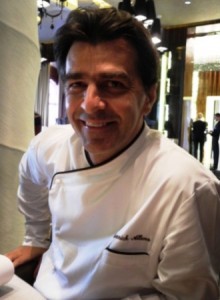 Yannick Alleno [three Michelin stars for his restaurant Le Meurice in Paris. He consults for Stay at the One & Only The Palm Dubai.] The arrival of the Michelin guide is linked to a lot of different conditions and factors and it is not my role to decide to give Michelin star. I do not have the pretention to know who deserves it or not but for sure, Dubai is now offering so many different types of food and is really a crossroad of cultures between Europe, Asia and the Middle East. I have had wonderful gastronomic experiences there that really show the globalisation of the city and the interest of the people for French or foreign cuisine. Many chefs have settled down in Dubai and creativity is rising more and more every day. Local products are high quality and it could easily become in some years a gastronomic capital.
Yannick Alleno [three Michelin stars for his restaurant Le Meurice in Paris. He consults for Stay at the One & Only The Palm Dubai.] The arrival of the Michelin guide is linked to a lot of different conditions and factors and it is not my role to decide to give Michelin star. I do not have the pretention to know who deserves it or not but for sure, Dubai is now offering so many different types of food and is really a crossroad of cultures between Europe, Asia and the Middle East. I have had wonderful gastronomic experiences there that really show the globalisation of the city and the interest of the people for French or foreign cuisine. Many chefs have settled down in Dubai and creativity is rising more and more every day. Local products are high quality and it could easily become in some years a gastronomic capital.
 Juan Amador [three Michelin stars for his restaurant Amador in Germany – lends his name to Amador at the Park Rotana Abu Dhabi.] I am sure that Abu Dhabi and Dubai are ready for Michelin. Both emirates are among the most favoured holiday destinations in the world and they are famous for excellent hotels and first-class gastronomy. Many hotels offer six or seven high class restaurants and a few second restaurants by European awarded chefs have opened in the last few years. Michelin gives tourists security by choosing a first rate restaurant in foreign countries and the restaurant guide is no longer publishing only editions for Europe. The publishing company decided to bring out printed editions for selected destinations in the whole world, like USA, China and Japan. So I would appreciate if there is a printed edition by Michelin for Abu Dhabi and Dubai as well.
Juan Amador [three Michelin stars for his restaurant Amador in Germany – lends his name to Amador at the Park Rotana Abu Dhabi.] I am sure that Abu Dhabi and Dubai are ready for Michelin. Both emirates are among the most favoured holiday destinations in the world and they are famous for excellent hotels and first-class gastronomy. Many hotels offer six or seven high class restaurants and a few second restaurants by European awarded chefs have opened in the last few years. Michelin gives tourists security by choosing a first rate restaurant in foreign countries and the restaurant guide is no longer publishing only editions for Europe. The publishing company decided to bring out printed editions for selected destinations in the whole world, like USA, China and Japan. So I would appreciate if there is a printed edition by Michelin for Abu Dhabi and Dubai as well.
Giorgio Locatelli [two restaurants in London each with one Michelin star. Chef consultant for Ronda Locatelli at Atlantis The Palm Dubai Jumeirah, and about to sign a new restaurant, Locanda in Dubai.] No – because even though there is fantastic food here like Yannick’s Stay at One & Only Palm and Zuma at DIFC, people are only just starting to understand food. This place is growing, but it’s all about ingredients. Instead of spending all this money on buildings, [Dubai should] build some green tunnels first – that will be the next step. Otherwise it’s always a risk that it will become very Americanised, with steak and chips.
Vineet Bhatia [one Michelin star for his London restaurant Rasoi. Consults for Indego at Grosvenor House Dubai.] Yes definitely – it would be a fantastic accolade for Dubai to be rated in the guide. There are some superb restaurants and chefs working at the highest quality in the UAE and so they should certainly be celebrated.
 Thomas Buhner [three Michelin stars for his restaurant La Vie in Germany and No 72 in the World’s Best Restaurants. In Dubai recently cooking for Sofitel’s Stars, Food & Art event.] I am really not sure. First question to ask is who are the diners that buy Michelin? Dubai is very special because you have guests from all over the world – Japanese, American, German, Italian, Spanish, Arab and they all perhaps want to find their own cuisine so if you are a chef you have to cook for all of these guests – so I think the chefs in Dubai have to find their own style first. Look at the Japanese kitchens, they have their own style and at the same time French chefs have Michelin restaurants there – and hence why there are more Michelin star restaurants in Tokyo rather than Paris.
Thomas Buhner [three Michelin stars for his restaurant La Vie in Germany and No 72 in the World’s Best Restaurants. In Dubai recently cooking for Sofitel’s Stars, Food & Art event.] I am really not sure. First question to ask is who are the diners that buy Michelin? Dubai is very special because you have guests from all over the world – Japanese, American, German, Italian, Spanish, Arab and they all perhaps want to find their own cuisine so if you are a chef you have to cook for all of these guests – so I think the chefs in Dubai have to find their own style first. Look at the Japanese kitchens, they have their own style and at the same time French chefs have Michelin restaurants there – and hence why there are more Michelin star restaurants in Tokyo rather than Paris.
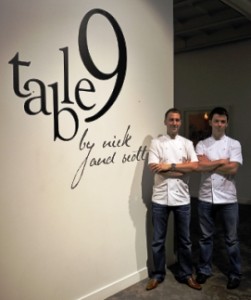 Scott Price [Executive Chef of Hilton Dubai Creek in charge of his and Nick Alvis’ home-grown restaurant concept Table 9 that replaced Gordon Ramsay’s Verre in November 2011.] No. I think that one thing in a restaurant is originality. You go somewhere like London and there are chefs popping up everywhere whether it’s in a little church or down a backstreet doing their own thing. That on its own is something Dubai does not have. A lot of the things that come here are imported. That’s part of the reason we wanted to stay and carry on. What we’re doing is a bit new and fresh, and we really hope that people see that. It’s not our marketing angle at all – it’s the opportunity we had and we believe we can do something exciting here. And a bit different. With regards to Michelin that’s not why we do our job. It would be nice if Michelin would come over but it’s not a nice pressure to work under. We’ve both worked in one, two, three-star restaurants and the pressure is immense to maintain that standard. But it should be your own standard at the end of the day. One of the nice things over here is we don’t have to worry about things like that. We can just be creative and enjoy it and we don’t have to stress if Michelin’s in every night. It is a nice feeling. A Michelin star is obviously a great accolade for any chef but that’s not why we do our job. Otherwise we wouldn’t be staying here. What we want to have is a busy restaurant with happy customers. That’s the first and foremost. That’s it and what we are concerned about. Anything else is a bonus.
Scott Price [Executive Chef of Hilton Dubai Creek in charge of his and Nick Alvis’ home-grown restaurant concept Table 9 that replaced Gordon Ramsay’s Verre in November 2011.] No. I think that one thing in a restaurant is originality. You go somewhere like London and there are chefs popping up everywhere whether it’s in a little church or down a backstreet doing their own thing. That on its own is something Dubai does not have. A lot of the things that come here are imported. That’s part of the reason we wanted to stay and carry on. What we’re doing is a bit new and fresh, and we really hope that people see that. It’s not our marketing angle at all – it’s the opportunity we had and we believe we can do something exciting here. And a bit different. With regards to Michelin that’s not why we do our job. It would be nice if Michelin would come over but it’s not a nice pressure to work under. We’ve both worked in one, two, three-star restaurants and the pressure is immense to maintain that standard. But it should be your own standard at the end of the day. One of the nice things over here is we don’t have to worry about things like that. We can just be creative and enjoy it and we don’t have to stress if Michelin’s in every night. It is a nice feeling. A Michelin star is obviously a great accolade for any chef but that’s not why we do our job. Otherwise we wouldn’t be staying here. What we want to have is a busy restaurant with happy customers. That’s the first and foremost. That’s it and what we are concerned about. Anything else is a bonus.
James Brennan [Food Writer, Academy chair of the Middle East region for the San Pellegrino World’s Best Restaurants Awards and Editor of the new Zagat Dubai.] Wherever there’s a high concentration of top-end restaurants and a vibrant dining-out culture, Michelin should be interested in having a guide. But people shouldn’t expect a slew of three star establishments to appear just yet. Remember, Copenhagen’s Noma – recently voted the world’s best restaurant for a third time – only has two Michelin stars. And there you have a restaurant that’s streets ahead of most in the UAE. However, as well as being arbiters of excellence and good taste, the Michelin guides are a commercial venture, and would be foolish to ignore such an energetic and rapidly growing restaurant scene as exists in the UAE for too long. It’s a scene that’s getting over its infatuation with overseas celebrity chefs; it’s developing some fine ‘home-grown’ concepts, and it’s beginning to mature. The Zagat guide is already coming to Dubai, so it’s only a matter of time before Michelin gets in on the act.
Dave Reeder [Editor of The Pro Chef Middle East.] Michelin stars are given for more than the food. Although the precise details of the judging criteria are still kept undisclosed, such qualities as ambience, ratio of service staff to customers, impeccable service and so on are also a key part of the star system. And, as we all know to our cost, in general terms, where fine dining fails in this country is in service. Food? Amazing! Decor? Incredible! Service? Er, well, maybe not so hot. Until owners and restaurateurs are as willing to invest as much in developing a real professional service culture as they are in the rest of the operation, this will always be the Achilles’ heel of the local fine dining scene. If I think back to the early days of Reflets par Pierre Gagnaire (clearly a two-star food experience on a good day), what made it special was the consummate professionalism of restaurant manager Etienne Haro and his front of house team. That’s the difference between great food and a sublime, Michelin standard experience – the total evening. And anyone who thinks that just because Chef X has his name above the door, guarantees it the Michelin touch, then you need to eat out rather more often in real Michelin starred establishments. Considered on food alone and thinking that most places I’m thinking of would only be granted single stars, who can name more than a dozen potential candidates for serious Michelin attention? Yeah, pretty thin guide, isn’t it?
David O’Brien [Partner of newly launched UAE-based restaurant consultancy, Ghaf Holdings.] I think it’s more a question of if Michelin is ready for Dubai. If you look at France and the UK, there has been a massive shift away from Michelin with leading Michelin starred chefs giving back their stars to allow them to cook what they consider to be more honest and in some cases more commercially successful food, without losing customers or compromising on flavour and quality. Chris and Jeff Galvin of Galvin Bistro De Luxe on London’s Baker Street had both held Michelin stars in their own right for many years but wanted to cook delicious food simply and sell it at an affordable price point. Within a few weeks [of opening] the restaurant was full and getting rave reviews about the quality of food, wine and service all delivered at a great price. The overriding question every critic was asking was is Michelin a thing of the past? Caprice Holdings is a shining example of this philosophy – their strap line is they cook food that people want to eat, not food that chefs want to cook. The reason for this shift is that the whole food chain ‘farm to fork’ is so much more on our radar and eating out is no longer reserved for a special occasion, but more a choice that fits our pocket or mood. It is as much about what we are cooking as how we cook it – the need for fancy sauces or foams no longer appeal in the way they used to. If you look at what is happening locally with initiatives like the farmers markets or the simple honesty of restaurants like Rivington Grill through to the top end of the price scale with the likes of La Petite Maison, says to me Dubai has come a long way in the past five to ten years and really is a foodie city with a bright future. Dubai does seem to be a city where hotel restaurants are the norm – not the case in almost every other city in the world. We are moving away from this as the market matures and more and more people start to call Dubai home. Now that the restaurateur has found Dubai and the hotelier is no longer the only one with a food offering, I do think the landscape will change ten-fold in the next five years. With all of the respect I have for Michelin, I do wonder if there is a place for them in Dubai for so many reasons.
Clearly the jury’s out. Michelin, can you help dish out a verdict? What’s your view FooDiva Friends – is Dubai ready for Michelin? Or is Michelin ready for Dubai?
A bientôt.
FooDiva. x
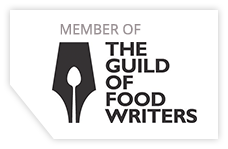














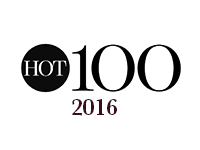
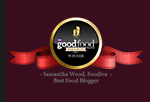
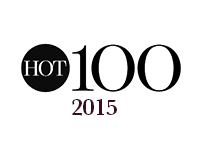








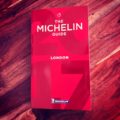


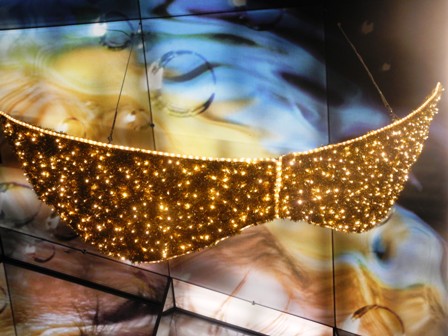


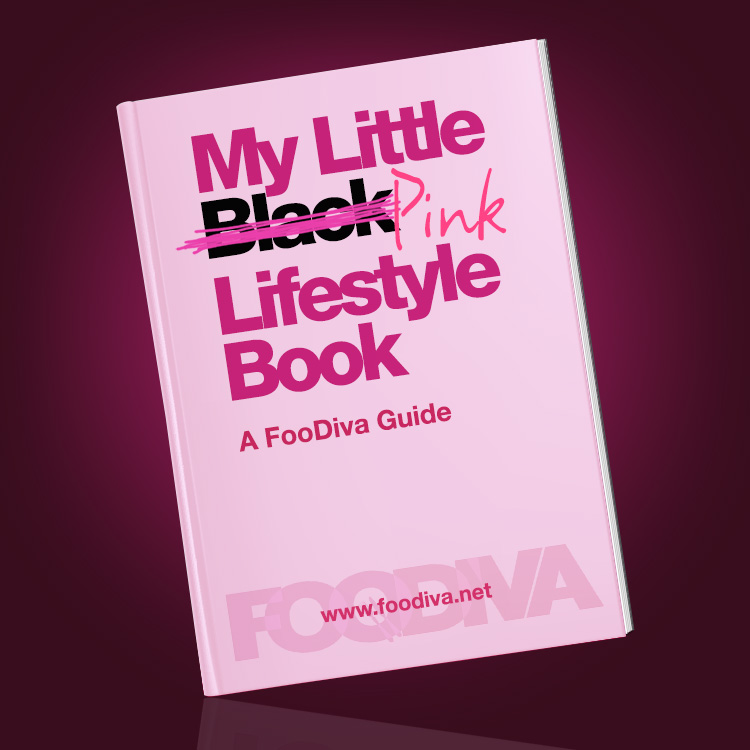


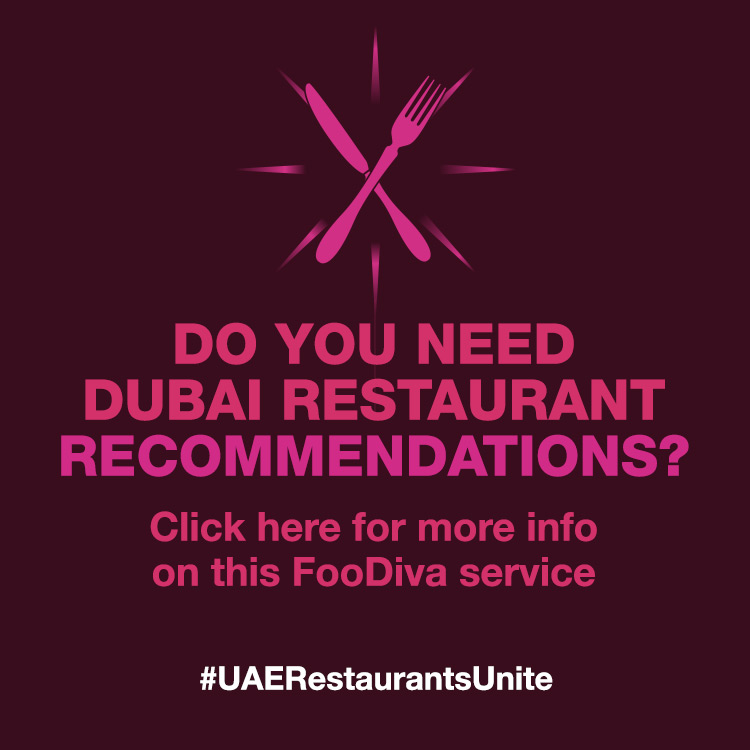



Hats off to Thomas Buhner and Dave Reeder for putting down the rose-colored glasses and saying it like it is. I’m not certain Dubai is anywhere close to the rest of the world when it comes to either concept, or execution…and I believe Michelin only tests the latter?
Investment in personalized style and service/training doesn’t seem to come through in most restaurants here, not just the high-end. Admittedly, I’ve barely dined at any of the super gourmet places, the first few were enough to make me feel quite strongly about the fact that if I were paying big bucks, someone behind the kitchen doors would have had to do much, more more than just copy/paste from their michelin-starred kitchen back home. Scott Price makes an excellent point about this, though again, I doubt originality of concept is one of the Michelin criteria.
My understanding is the F&B concept (of which the surrounding is key) does play a role in three Michelin ratings, but not for one or two stars which tend to focus on food. Sadly due to licensing laws we are restricted here on restaurant location and it’s the booze in this town that brings in the big bucks – but it is changing like I explained. Mind you, there’s many a three-star Michelin restaurant that doesn’t make a profit. Hopefully with time and more restaurateurs opening premises here, the restaurant scene will develop enough for Michelin to show an interest.
Very informative – before reading the article I would have categorically said ‘Yes’ but now I am not so sure……. It would be great if Michelin could comment…..
Thanks. Yes I hope Michelin will add their dirham’s worth too!
I’ve been looking forward to reading this, and I would like to hear more of your thoughts on the matter. Personally, I think there is no reason for Michelin to come to Dubai. The guide is a road book, designed for recommendations on driving holidays, and Dubai is an island in a sea of desert – not really road trip territory. I do understand that the Michelin Star if the modern era is more than that, but combined with what you have mentioned above (particularlys service and consistency) it provides a firm answer of NO from me. Saying that, Dubai IS an important dining destination, and a respectable guide us needed. The recommendations on Lonely Planet and Trip advisor are laughable, and mist other guides don’t even rate Dubai. Our local, Time out, is more information than rating. It’s like what the chefs of Table 9 said – a rating system creates pressure within the industry. But perhaps that’s exactly what is needed to shake it up. I’m inspired. Going to work on a Hedonista hat rating…
I could discuss this one for hours Sarah. Whilst Michelin started off as a road guide, it’s certainly changed since then, and is considered an indispensable restaurant guide by many whether you’re driving or not. Tokyo, Hong Kong etc aren’t exactly driving cities either. I know many who religiously plan travel and holidays around Michelin restaurants – and hence why it’s a good thing for Dubai long term. Gosh completely agree the ‘guides’ out there are embarassing – Trip Advisor in particular where we all know how easy it is too manipulate a restaurant’s ratings. Let’s see how Zagat fares here.
I suppose there are various criteria that are taken into consideration when a restaurant is awarded a Michelin star.Quality of food,service,ambience,consistency and so on…When one reads Michelin star you looking at an experience that is little short of magical..Extraordinary..Pehaps even been awe stuck by the entire experience.Although I’ve yet to discover a lot of fine dining in Dubai,I’ve had the pleasure of dining at Zuma,Nobu and Hakkasan and Buddha Bar.I do admit these restaurants do match up to being Michelin star standards.
The fine dining scenario has certainly evolved in Dubai over the past decade or so.I’ve lived here for over 15 years and have seen the dining culture undergo a huge metamorphosis..I’d say Dubai…You are so Michelin star ready:))
Thanks Shy. I thought I’d lived here a long time (coming up to 14 years) but you beat me! You make a valid point in that the city’s restaurant scene has developed drastically for the better over the years. Who would have thought we would be so spoilt for choice with all these openings? Thanks for sharing.
Well I always thought that these prestigious tags do bring in lot of attention and is in general good for the Dubai gastronomical scene. But after reading all the experts’ opinions I am in slight confusion. Without any emotional ‘Dubai’ attachment to the issue, it’s a fact that lot of responsibility comes with the crown and it should rest on a head which deserves it not the head which looks the best in it. Would like to know FooDiva’s opinion on that.
Poor Service and ignorance is a Dubai character. Starting from many small supermarkets to big stores and restaurants, most of them don’t know what they are selling or what goes into a product. I do agree with you that they should first invest in experienced experienced maitre d’s and waiters. This ofcourse cannot be generalised and I had fabulous experiences in some.
With all the big-names coming in and setting up their signature restaurants here, it is obvious that Michellin has it’s eye on Dubai. It will definitely bring in a health competition for sure. But and will be beneficial if and only if the competition is at an international level and not inter-UAE level.
Giorgio Locatelli’s advice on investing on green-tunnels is absolutely important. Dubai has one of largest carbon footprints in the world. It would be lovely to see hotels and restaurants investing on their own green patches and thinking of creative and sustainable alternatives to mindless grocery imported from elsewhere. Jebel Ali Golf Resort & Spa does it. A few others are doing it. I’m slightly keen on this factor as it’s close to my heart.
Short term goal – Michellin = Sure, why not?
Long-term Goal – Michellin + Green Restaurant/Responsible tourism = 100% desirable. Applause!
Hi Ishita. If I understand you correctly, then quite right the Dubai government and its municipalities/ DTCM tourism board, need to take ownership working with the restaurants, hotels, suppliers etc to drive amongst lots of things service standards and staff education, development and support of the UAE local farms. In addition to Jebel Ali, Nobu also has its own garden at Atlantis – Giorgio Locatelli has been known to pinch the odd vegetable! Really appreciate your comments.
The Black Hat Guide is surely a major step in the right direction for Dubai’s culinary scene? I have a copy at home and literally use it everytime I go out to eat now. I heard that it is the only rated restaurant guide in the UAE?! I have no idea why it’s taken Dubai so long to get to this stage but better late than never I suppose!
I have a copy too Rachel, but I don’t really rate What’s On’s reviews as particularly credible – they never say anything negative and simply choose not to publish that review! However, I think the Black Hat guide is a step in the right direction – it just needs to stand by itself and not be reliant on a huge publishing house and its many advertisers. Thanks for dropping by.
I’m a stranger to Michelin restaurants. Never have the chance to eat in one, but I do dream of getting the chance to. So this is just me and my humble opinion as a diner, who desires a mind-blowing gastronomic experience which will give me value for my hard earned buck.
I do agree about the point on the service, which really needs to be improved. Another point would be CONSISTENCY. I believe a lot of restaurants here (more pressure to the higher end of the spectrum) do fall short of it.
It would be great to have a Michelin star resto here within reach. But it will take some time before it makes its mark here 🙂
Completely agree Didi. Consistency in service more than food is this town’s weakest link.
Maybe the question shouldn’t be, if Dubai is ready for the Guide Michelin – but if the Michelin is ready for Dubai 😉
First – I would include also Abu Dhabi into the guide. Lets face it – great restaurants are also in the capital – and it is not only about the big brands.
The Guide Michelin is awarding sustainability [fresh and local produce] and authenticity in restaurants – this created the “shock” in Japan – as Japanese are obsessed with both points – and this would be the downfall of Dubai. Even if you would not limit to Emirati restaurants but Arabic restaurants: not even one restaurant [I know from], can convince with new [speak contemporary] interpretation of Arabic cuisine with rather local ingredients.
See – I am German – and despite of the fact, that most people don’t know that you have fantastic restaurants in Germany, “we” are on number 4 behind Japan, France and the US [but still in front of Italy, Spain and UK], when it comes to 3 Michelin star restaurants.
Why? Because there was a couple of decades ago a movement in Germany to assimilate modern cooking with local flavors.
This has to come to the region!
For the service – I am not so sure, if it is really as bad, as everybody says. I think there is another mentality – which most Westerners can’t digest well. It is the slightly “hollow” friendliness – it is rather reaction than action. Problem is, that the cuisine in better restaurants is far too estranged to them – as well as the service.
The question is that: would we be happy to pay a much higher price [than the anyway rather high prices on the menus] to receive “grown up” service [from professional Western “career” waiters]?
If it comes to many reviews I have read, price is always an issue – so it might be translated into a “we got the service, we deserve”…
I already scratched on this point, but didn’t mentioned it specifically: produce – and our suppliers. I found it hard to find sometimes even rather basic food in the 5 star hotels I worked since more than 7 years [UAE]! What I understand is, that the municipality is asking for specific hygiene certificates of the supplier [and a lot of supplier simply don’t have those].
Hence there are only a few specialty suppliers, with high prices and usually not local produce.
Long story short – the Michelin would change a lot – but on the other side, it is unlikely that the guide would come to “our” country, if things don’t start to change…
Proper reviews [like yours] help definitely already the situation [however reviews in TimeOut are counterproductive].
Great feedback Dominik thank you for taking the time!
I do think that even though Abu Dhabi’s dining scene is fast expanding, Dubai has a head start with more potential for Michelin here.
As for service you’re quite right, we pay for what we get. La Petite Maison here is one of the few restaurants that employs European waiting staff who know and eat their dishes – but we pay a premium for that service and experience.
Interesting point about the suppliers. I expect they would need to be HACCP hygiene certified which some of the smaller local farms would not have. But it’s also a consistency issue and these smaller farms are simply not able to supply the produce in large quantities all year round. I need to investigate that one further – perhaps a topic for another post!
Out of interest have you eaten at Thomas Buhner’s three Michelin star restaurant La Vie in Osnabruck/ Germany?…still on my wish list!
Many thanks for dropping by.
I’d love to keep you posted on our various food and drink events and promotions for our clients. Could you please email me your contact details on lavinia@ideas361.com
FooDiva FooDiva, I really like your blog, I do, I always appreciate your regular posts and how well on the loop you are for everything that is new in the Dubai food scene.
But you should drop this question about Dubai readiness for Michelin, you just mentioned again in your last post… Don’t get me wrong I’d love to have a Michelin guide here, not because I believe many restaurants are worth a star (maybe only Reflet has appropriate European standards, Petite Maison is excellent but overrated if you put this in France, where they do actually have a restaurant, it would not differentiate that much from other good Bistros Gastronomique), I would love to see Michelin here because this would attract top chefs from around the world to work in Dubai (Scott Price style). And when I say top chef I do not mean Michelin star chefs from Europe coming here to open another of their restaurant leveraging on their names, I mean young ambitious chefs coming to Dubai attracted by the chance to win the most seek prize for a chef i.e. a star from Michelin.
Dubai restaurant are ready for Michelin, they are nice, big, well-kept venues, some good chefs are already here, other will come attracted by the chance of getting the Michelin stars. Service it is not a Michelin requisite, but I am sure with good management can be improved to adequate level. Where Dubai is not ready is on the audience. Compared to Europe or Japan or US, most people here are not enough sophisticated on food, prefer quantity over quality or, when it comes to fine dining, are attracted by branded item in the menu without really understand the meaning and that they might actually buying lark mirrors… wagyu, Kobe, Pizza Napoletana, wood-oven, caviar, burrata, truffles, home-made…
Furthermore, how can a good chef propose a bit of creativity or variations if most of the audience don’t know (and therefore can’t appreciate) food produce such as sweetbread, ankimo, bottarga, rognons de veau, razor clams etc.? Or take sushi, now a widely popular food all over the world as well as in Dubai. Still, the majority of the people would order the few variety of fish they know, and hence the offer is most of the time limited to sake (salmon) and maguro, followed by ika, hamachi, aji, ebi… but how about toro, chu-toro, bintoro, Sanma, uni, engawa (definetly my favourite), ama-ebi…
Look at you for example, which fall in the “very sophisticated” category for Dubai standards, well I already gave you my comments on how you got it all wrong on the Pizza Napoletana (btw for thin crust Pizza, you should try “Pizza Romana” which is now served by the excellent Giolitti restaurant in front of Dubai Mall), now let’s take another example: your Wagyu beef post. First of all anyone who had tested the real Japanese Wagyu would argue that there is no comparison with the Australian or US produced Wagyu. Also “Wagyu from Kobe” does not exist outside Japan. Kobe prefecture does not export its Wagyu (or actually not until last year). What you might find abroad is just another Wagyu from other prefectures in Japan. Actually Kobe is not even the best Wagyu (arguably), the most recognized are the Matsusaka beef and the Wagyu from Yamagata prefecture (near Fukushima prefecture). So the most famous Japanese beef brand is actually one of the most accepted lie in the food international arena…
Sorry for being so direct, but eating in many restaurants and travelling for some time here and there does not make you Andy Hayler…
BTW I heard a Spanish restaurant is going to open next month in Westin, with a head chef coming from El Bulli and El Cellar de Can Roca, stay tuned!
Thanks so much for taking the time to post such a thorough comment, and for liking FooDiva 🙂 Good timing actually given the 2014 Michelin stars have just been dished out for Great Britain and Ireland 😉 This particular question as to whether Dubai is ready for Michelin or not always garners interesting and mixed feedback like yours, which is why I always ask and will continue to ask it until they come here! I am not quite sure from your rationale whether you think Dubai is or isn’t ready for Michelin?…I do agree with you though that the fine dining community here, ie those who when they travel eat in Michelin restaurants is very small here, so the majority of Dubai’s dining out population would not appreciate a Michelin starred restaurant’s menu.
As for Wagyu from Kobe, it may not be the world’s best but it’s got a good marketing machine. It’s the power of branding – look at what’s happening to Blackberry now versus iphone as an example. The latter may technically have flaws but people buy into the brand. I’ve eaten Japanese Wagyu from Kobe in Japan, and I have to say it didn’t compare favourably to Australian Blackmore’s Wagyu which I most recently ate at Australian Chef Shannon Bennett’s dinner in Dubai – but in all fairness the cooking technique played a role.
I had heard of Giolitti so thanks for the reminder, must get round to checking it out – even though I find Rossovivo hard to beat here. The new Spanish restaurant at the Westin is El Sur. I have a menu tasting scheduled the week after next so I’ll keep you posted.
Who said anything about being Andy Hayler?…given am a diva would much prefer Marina O’Loughlin, but I’ll take the reference as a compliment 😉 Please do continue to comment, I do love a good debate. Have a wonderfully delicious weekend.
Only came to read this now, and this great article reinforces my statement made on Twitter last week.
I’m just glad that the persons I esteem the most share my opinion.
The one thing I strongly disagree with is the sentiment that there is no sophisticated crowd in UAE, it’s terribly condescending.
Besides, there is no requirement for a “crowd” since if venues were to get Michelin’s stars there would be just few and the customers with great palates and knowledge based locally as well as the transients would be satisfied.
Now let’s not be hypocrites by thinking that Michelin restaurants are patronized exclusively with sophisticated and knowledgeable guests, i’m willing to bet that Michelin rated restaurants the world over have a good 40% customers wanting the chance to get that dinner party, Instagram or FourSquare bragging right, this 40% whith more money than sense mixed with the other 60% would indeed be enough to keep those few venues alive and well
It also seems obvious that the Michelin tourism is not very developed here because errr….Michelin is yet to rate venues here.
I think the onus is on Michelin to start so that the chain of event can also take place, why would a hotel or entrepreneur spend millions getting a place ready and worthy of 2 ,perhaps 3, stars if the guide isn’t rating the country yet?
finally there is also clear distinctions between the 1, 2 and 3 stars.
if the question had been “Is the UAE ready for a scene of 10 venues with 3 stars?” then the answer is most definitely no because it’s all about ratios, around the globe and as an average there is a 3 star venue for every 15 one star venues.
With this is mind the country would do very well with two, maximum three 3* venues.
You do have a point David. A Michelin restaurant will have a mix of true foodies and diners who just want to eat there for boasting sake. But more importantly, I strongly believe we need to see more creativity with Arabic cuisine (like what Colin is doing at Q’bara) for Michelin to really take note. Anyhow if we keep on talking about it, hopefully they’ll start assessing Dubai! Thanks for dropping by with insightful opinion.